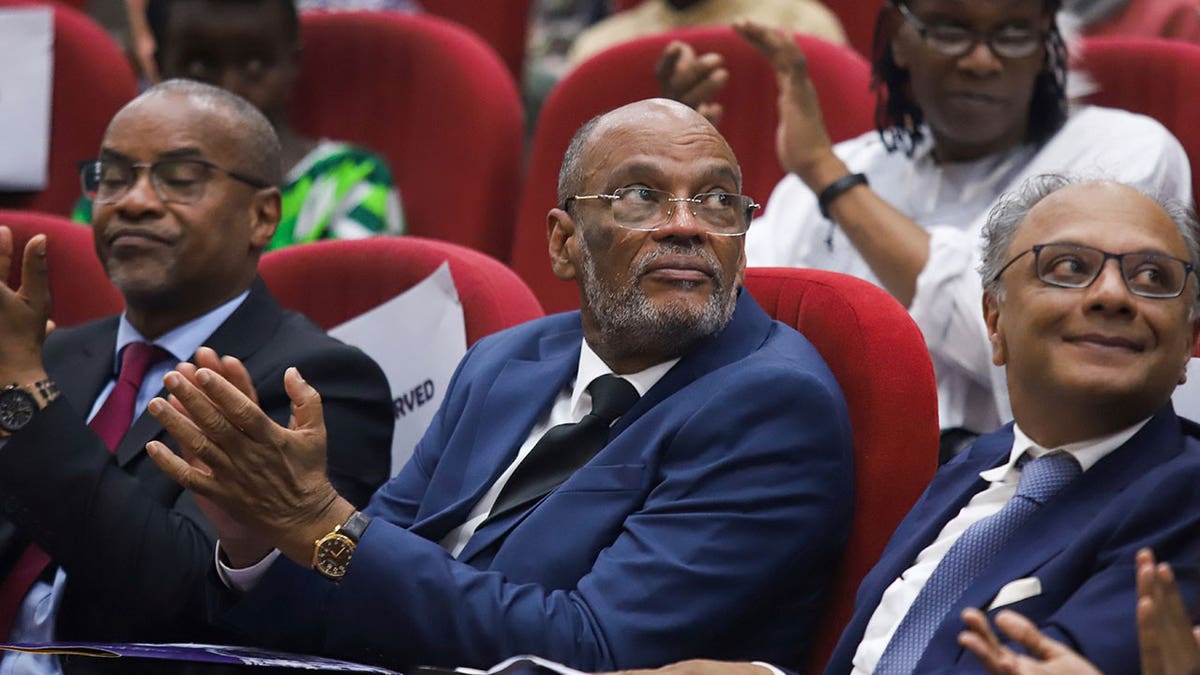Fox News Flash top headlines for March 19
Fox News Flash top headlines are here. Check out what's clicking on Foxnews.com.
- Eight members have been nominated to the council that will select an interim successor to Haitian Prime Minister Ariel Henry.
- Haiti has found itself under effective gang control after Henry was barred from re-entry after traveling abroad.
- Gangs have set fire to police stations, threatened the international airport, and freed over 4,000 inmates from the nation's prisons.
Caribbean leaders said Tuesday that all groups and political parties except one have submitted nominees for a transitional presidential council charged with selecting an interim prime minister for Haiti, which remains engulfed in gang violence.
The original nine-member council was whittled down to eight members after the Pitit Desalin party, led by former senator and presidential candidate Jean-Charles Moïse, declined a seat last week. Moïse is allied with Guy Philippe, a former police official and rebel leader who served time in the U.S. after pleading guilty to money laundering.
The Dec. 21 group, which is allied with Prime Minister Ariel Henry, was one of the last holdouts, submitting a name Monday to the regional trade group known as Caricom. Its nomination had been delayed by infighting as group leaders bickered over potential candidates.
Henry, who remains locked out of Haiti because ongoing gang violence has forced the closure of its main international airport, has promised to resign once the transitional council is created. He was on an official trip to Kenya pushing for the U.N.-backed deployment of a police force from the East African country to fight gangs in Haiti when armed gunmen launched attacks on Feb. 29 in the capital, Port-au-Prince, that are still ongoing. The deployment has been delayed.
U.N. deputy spokesman Farhan Haq told reporters Tuesday that "Kenya has concerns about the makeup of the government on the ground."
"We certainly hope that they will be able to deploy as quickly as possible," he said. "But they have their concerns. And for our part, what we want to make sure is that the transitional government arrangements can be implemented."

Haitian Prime Minister Ariel Henry attends a public lecture at the United States International University in Nairobi, Kenya, March 1, 2024. (AP Photo/Andrew Kasuku, File)
Gangs have torched police stations, opened fire on the main international airport and stormed Haiti’s two biggest prisons, releasing more than 4,000 inmates. On Monday, they attacked and looted homes in two upscale communities that had previously remained peaceful, killing at least a dozen people during the rampage.
The U.N. humanitarian office reports that the situation in Port-au-Prince "remains tense and volatile" with schools, hospitals and government buildings being attacked and many curtailing operations, Haq said.
He added that the health sector continues to struggle given a lack of medical supplies, healthcare workers and blood.
Scores of people have been killed during the attacks, and around 17,000 people have been left homeless, the majority fleeing to Haiti's calmer southern region, according to the U.N. Office for the Coordination of Humanitarian Affairs.
"We are very concerned about the violence," said Guyanese President Irfaan Ali, who is also the Caricom chairman.
He told reporters on Monday night that time was of essence given the situation, adding that officials remain hopeful for progress.
"We have been having continuous meetings almost every night, because the Haitians have to get the presidential council in place," he said. "Progress has been made."
In addition to selecting an interim prime minister, the council will be responsible for appointing a council of ministers, a provisional electoral council and a national security council. All members of the transitional council also must back the deployment of a foreign armed force.
Those awarded a spot on the council are EDE/RED, a party led by former Prime Minister Claude Joseph; the Montana Accord, a group of civil society leaders, political parties and others; Fanmi Lavalas, the party of former President Jean-Bertrand Aristide; the Jan. 30 Collective, which represents parties including that of former President Michel Martelly; and the private sector.
Of the remaining two nonvoting positions, one would go to a representative of Haiti’s civil society and the other to its religious sector.
CLICK HERE TO GET THE FOX NEWS APP
Caricom officials haven't released the full list of names nominated to the council.










































